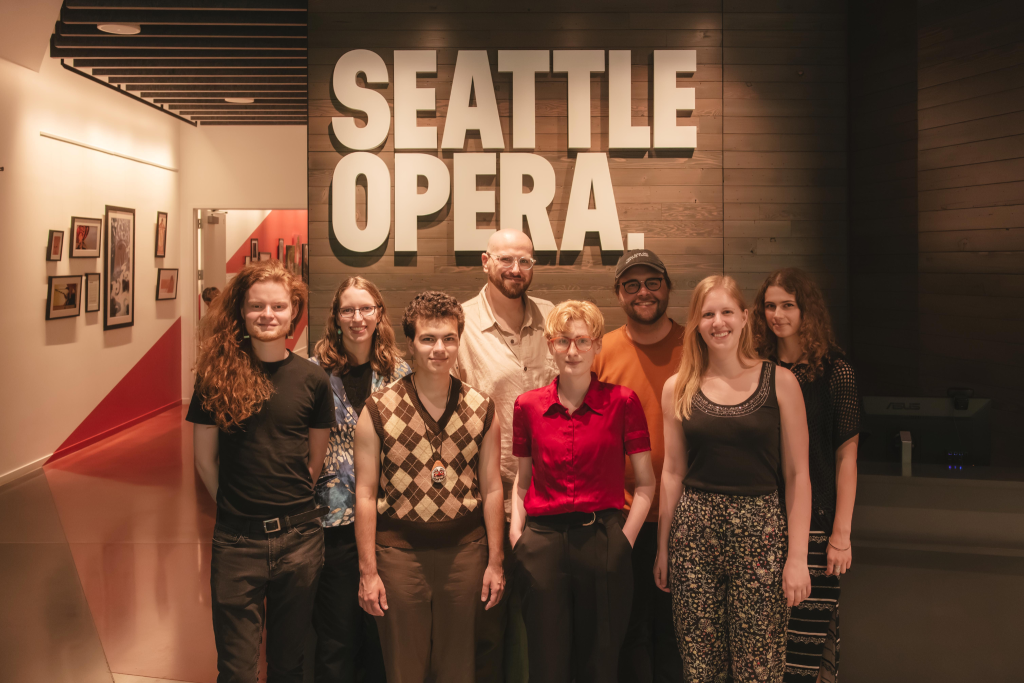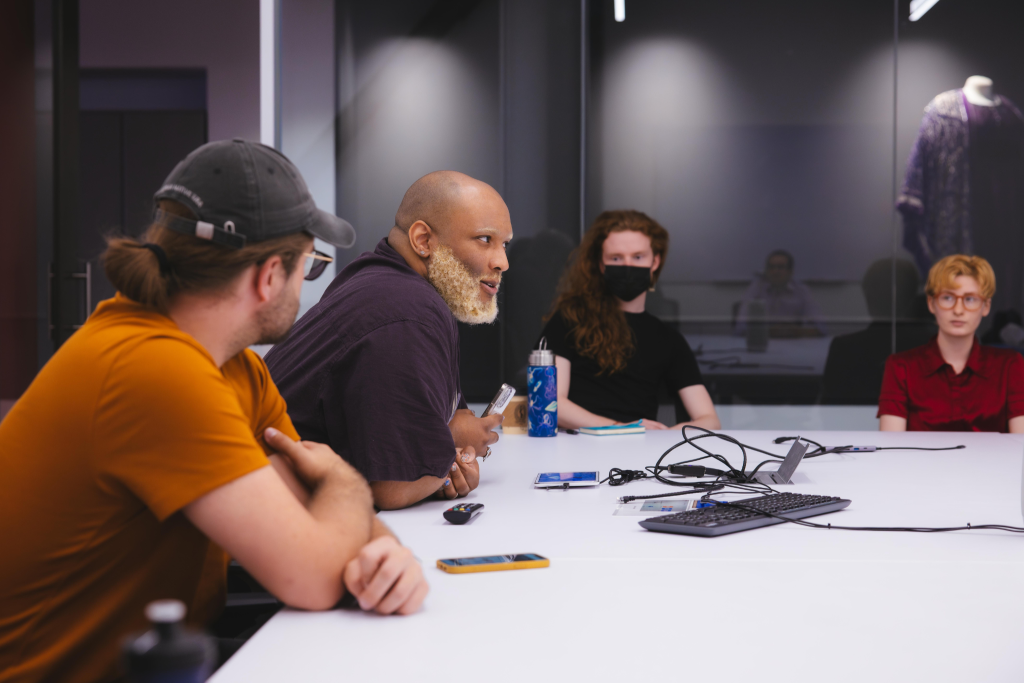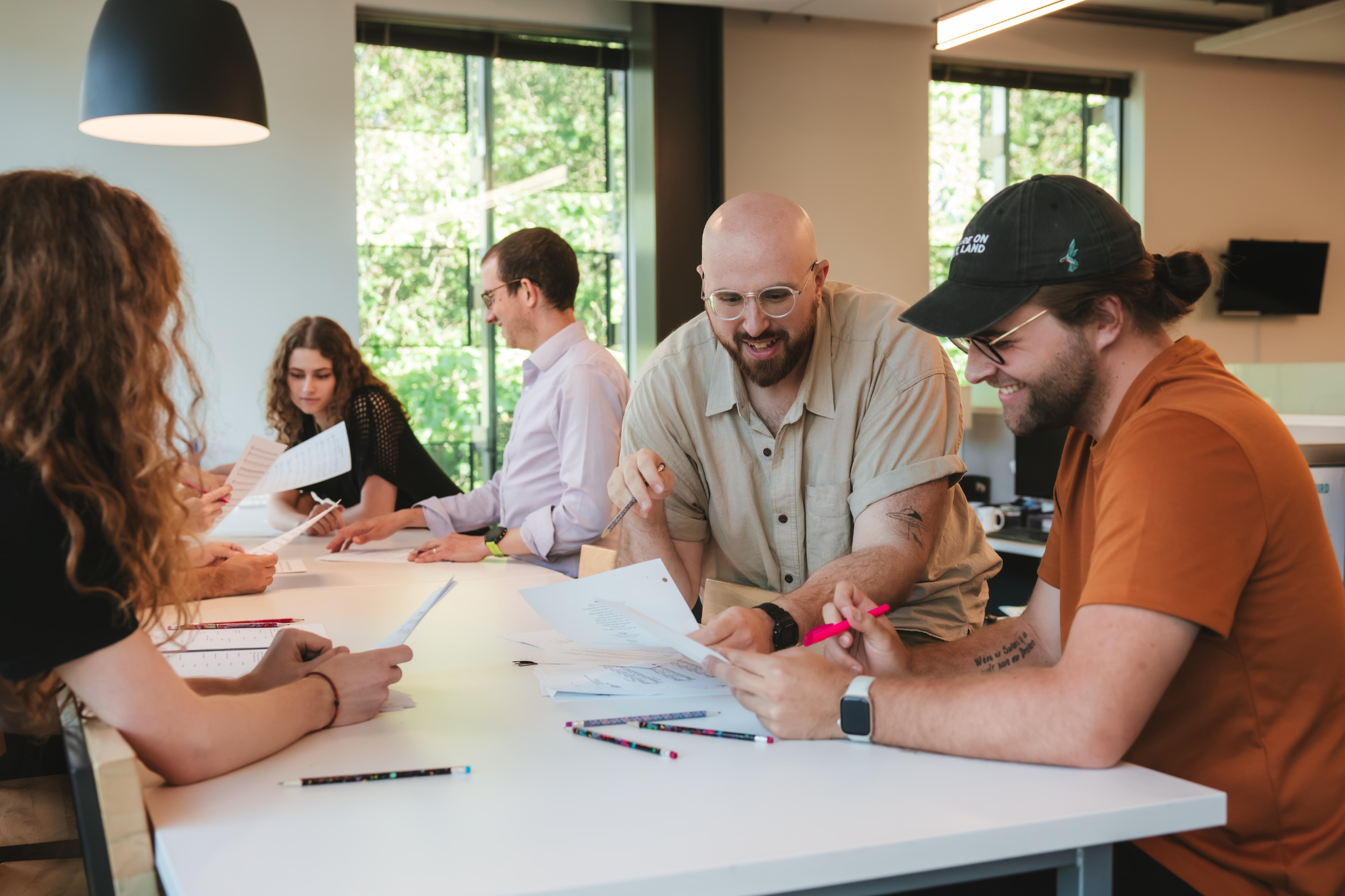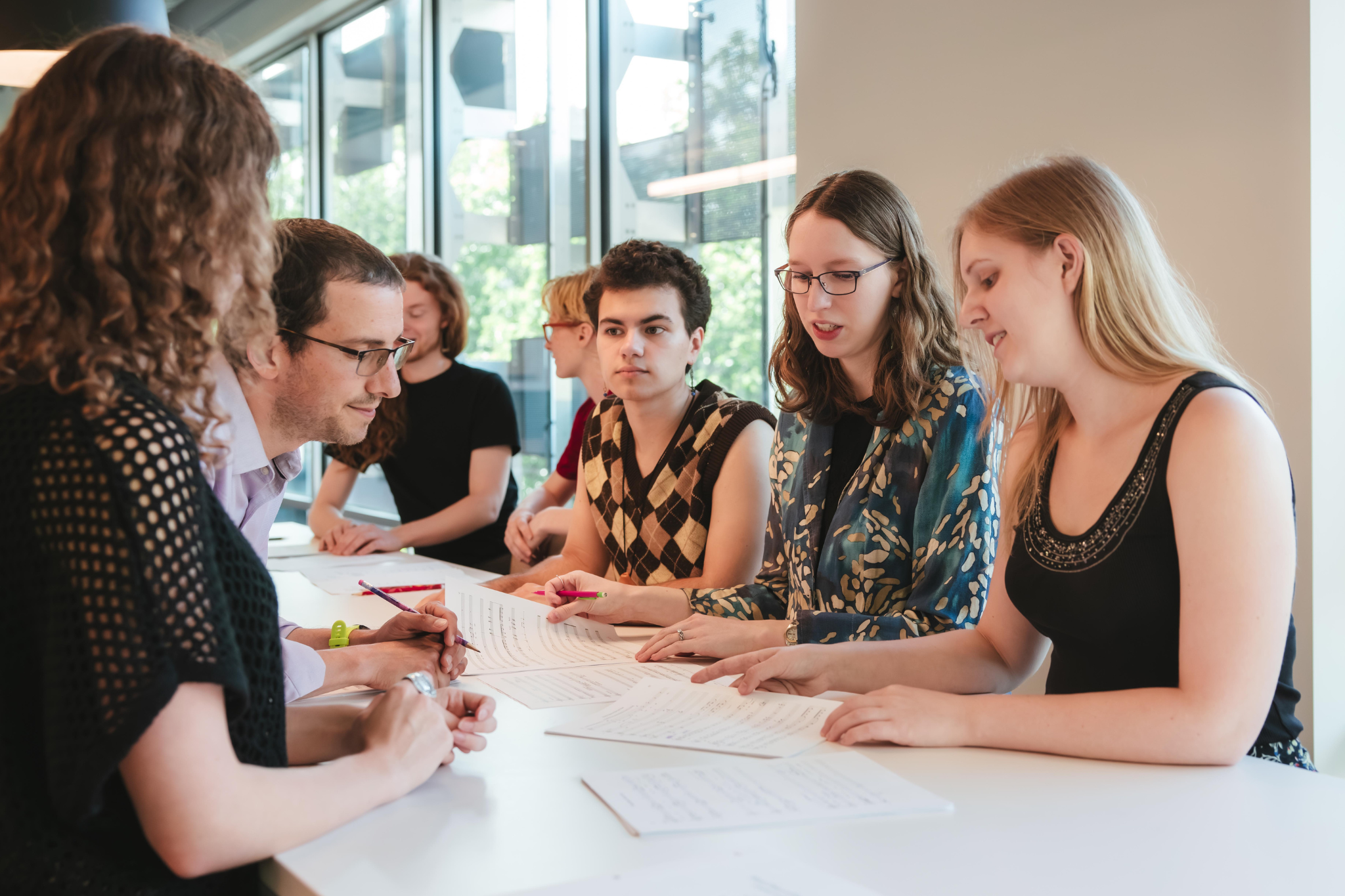Seattle Opera – 2024 Accelerator Case Study
Seattle Opera
Website: seattleopera.org
Budget Size: Greater than $20M
Region: Northwest
County: King
Artistic Focus Area: Opera/Music
Community Accelerator Grant Award: $12,500 in 2024, $11,900 in 2023
Primary Impact Category: The Future
Mission Statement: To thrill, inspire and educate through the shared experience of opera.

Creation Labs, Seattle Opera, photo by Sunny Martini.

Creation Labs, Seattle Opera, photo by Sunny Martini.
When asked for a one-sentence summary of Seattle Opera, Julia Curns-Welch, thecompany’s Associate Director of Institutional Giving, pauses, then says, thoughtfully, “More than what you see on the main stage.” Founded in 1963, Seattle Opera is one of the largest arts organizations in Washington and one of the nation’s most significant regional opera houses, perhaps best known for its audacious early commitment to producing Richard Wagner’s Ring cycle in its entirety. In 2003, the company (in partnership with Pacific Northwest Ballet) completed a $127 million renovation of Marion Oliver McCaw Hall, a world-class performance space on the Seattle Center campus, and in 2018, they opened the Opera Center, a $60 million facility for administrative offices, production spaces, and community engagement programs, directly next door.
“Our community built us this beautiful space,” says Dennis Robinson Jr., Director of Programs and Partnerships, “and we’re always working to get folks here. But recently, we’ve really been prioritizing building trust with communities that we haven’t always had strong, trusting relationships with.” For his team, that means facilitating performances in public parks across King County, organizing tours to schools and community centers in every corner of the state, supplementing music education in schools that have seen their choral programs cut, and facing, head-on, 400 years’ worth of preconceived notions about what
opera is and who the art form is for. Seattle Opera’s educational programs, which focus on storytelling, rhythm, and sharing culturally relevant stories, emphasize that opera is relatable, resilient, and very much alive.

Creation Labs, Seattle Opera, photo by Sunny Martini.

Creation Labs, Seattle Opera, photo by Sunny Martini.
This ethos can be seen perhaps nowhere as clearly as in their new-works program Creation Lab, which supports emerging composers and librettists from across Washington, Oregon, and Idaho in the creation of new 20-minute operas. Now in its fifth year, Creation Lab has generated 25 brand-new works. Dennis happily admits that Seattle Opera didn’t know these fledgling writers and composers were out there when Creation Lab first started – “And I don’t think they knew, either!” Program participants have come from a wide array of artistic backgrounds, from slam poetry to video game score composition, and many had never even considered engaging with opera before they were presented with the opportunity. “We reached out to folks,” says Dennis, “and we said, ‘You know, opera is just storytelling through music,’ and many people realized they were already doing exactly that.” Workshops and performances are held in the Opera Center’s 200-seat performance space, which Dennis sees as revolutionary in and of itself: “Historically, opera is an incredibly expensive art form – it takes a lot of people, it takes a lot of time, and that means it has to take revenue and ticket sales into account.” Creation Lab’s relatively scrappy and stripped-down approach, he believes, is good for the art form, good for audiences, and necessary for the health and vitality of companies like Seattle Opera.
It might seem to an outside observer that an award of the Community Accelerator Grant’s size would not have a significant impact on such a major institution. In actuality, says Julia, grants of this size are tremendously important, especially for programs like Creation Lab. For one thing, it can be challenging to find funding for a brand-new program that is shifting from year to year as the administrative team figures out what process best serves its artists. Because the Community Accelerator Grant doesn’t have narrative sections or require a final report, Julia reflects, “I don’t spend a lot of time explaining iterative
adjustments or changes. I get to be focused on how the program is moving forward and serving its purpose.” For another, the funding landscape in Washington has shifted dramatically in recent years; many corporate and foundational funders have trimmed down their portfolios, prioritizing making a big impact on a select handful of grantees. That the Community Accelerator Grant is taking the opposite approach and working to support the sector at large is, Julia says, “a really meaningful commitment, and one that gives me a lot of hope.”
The Community Accelerator Grant is emblematic of what trust-based philanthropy should be. It centers the needs of arts organizations. It says, ‘You know your work best, and we want to support that.’ That ethos has grown since the pandemic years, but not all funders are there yet, so I love to see large, notable institutions like ArtsFund practicing it. It’ll help everyone – from smaller family foundations to major contributors in Washington State philanthropy – to see that you can put a grant program together that is
not enormously taxing on staff and still get an incredible impact.”Julia Curns-Welch, Seattle Opera
Thanks to this year’s award, Seattle Opera was able to cover essential overhead costs for Creation Lab participants, such as travel and housing. They were also able to hire a new staff member to oversee the program and, crucially, to bump that position from the Coordinator to the Manager level, allowing them to hire an outstanding applicant, Marjoram Lynn, who had held a similar role supporting new work at Cincinnati Opera. Julia considers this level of investment in programs uplifting new voices in opera to be transformative. “I hear from people who have been members of our community since the seventies, when we first took on the Ring cycle,” she says, “talking about how much they miss those days, how amazing it was to be there when something incredible started. My response is always, ‘Well, in Creation Lab, we actually have that right now.’”